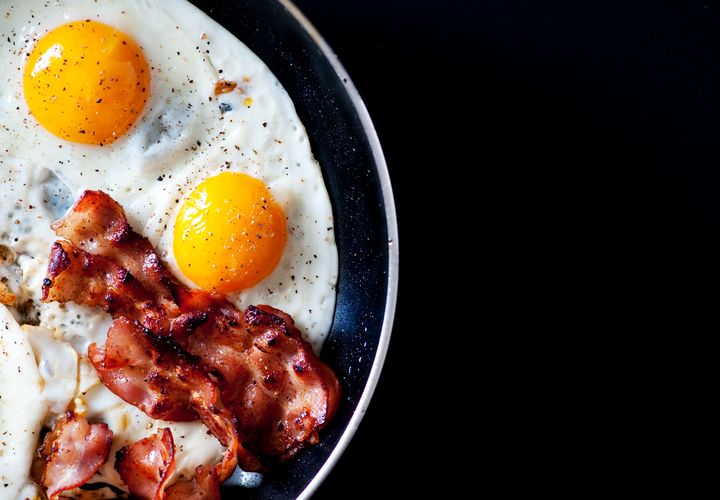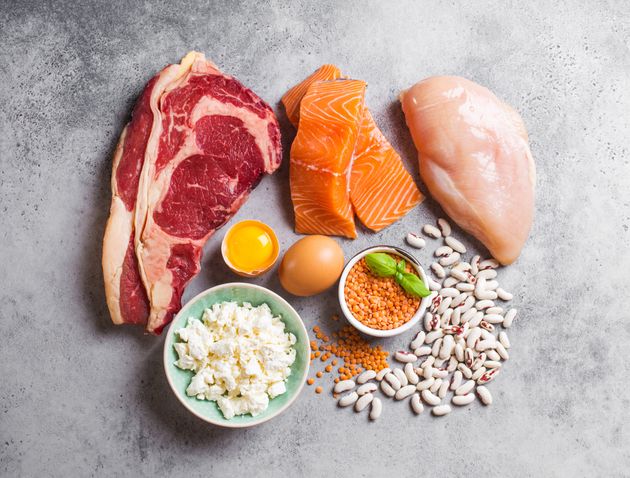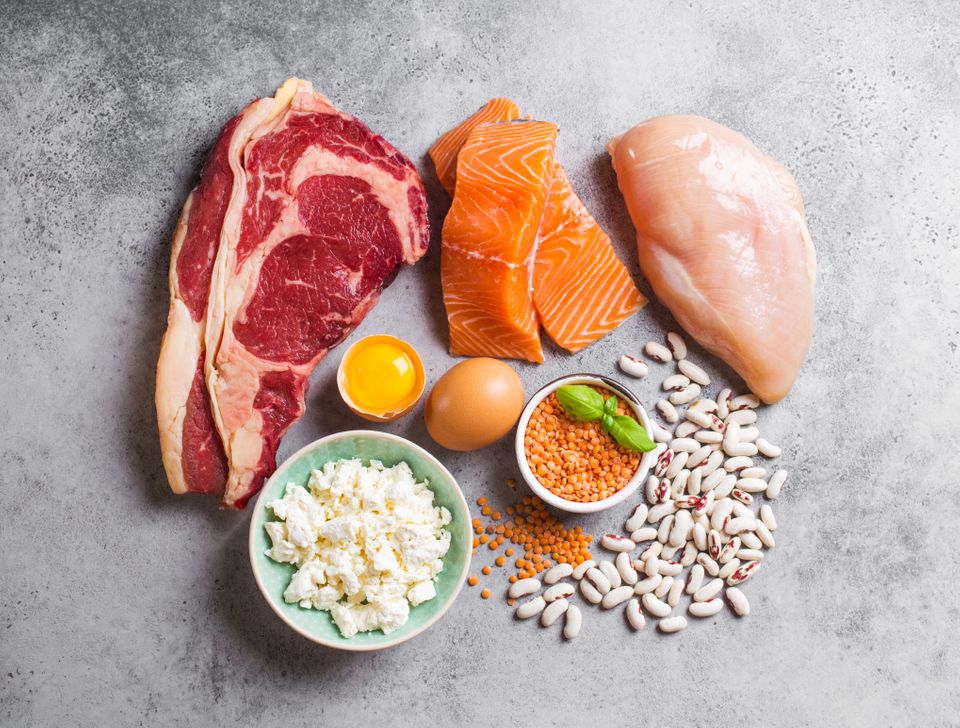A stroll through a grocery store used to include lots of packages touting the sought-after term “low fat.” Years later, it was replaced with exciting-looking “low carb” claims.
These days, “high in protein” is a benefit you’ll see touted on lots of products, whether that’s protein powder, bone broth, salty snacks or ready meals. But people are more confused than ever about how much protein they should eat.
Advertisement
How much protein do you really need? We spoke with experts who explained its importance, why it’s not a one-size-fits-all nutrient and how to figure out what your body needs.
Why you need protein
It’s a pretty simple situation: Protein is good for us, and we ought to eat some every day. What’s most important to remember is that our body really does need what protein provides.
“Most people think of eating protein simply to maintain or help improve muscle size, but it does far more in our bodies,” says Michael J. Ormsbee, a Florida State University professor in the department of nutrition and integrative physiology and director at the Institute of Sports Sciences and Medicine. “Proteins serve as enzymes, hormones, receptors, signalling molecules and much more.”
Because protein is not something our bodies keep in reserve, like body fat, it’s a daily essential, explains Floris Wardenaar, an assistant professor at the College of Health Solutions at Arizona State University. “Protein provides essential amino acids, which we need to consume as part of our daily diets,” he says. “That’s because the body constantly breaks down protein to create the building blocks for new protein, resulting in a loss that needs to be replaced with food.”
Advertisement
If you notice that you feel fuller after a protein-rich meal, you’ve discovered another of protein’s benefits. “It keeps us satisfied and fuller for longer,” says Jane Burrell, an associate teaching professor at Syracuse University.
What’s the magic number?
How much protein is enough to realise all of these benefits? As a basic guideline, the US Food and Drug Administration recommends that adults consume 50g of protein a day as part of a 2,000-calorie diet. The British Heart Foundation puts it this way: most adults need around 0.75g of protein per kilo of body weight daily (45g for the average woman, or 55g for men).
Some experts take a more nuanced approach. “Adequate protein intake isn’t one number or target to hit, but more of a range that depends on your age, sex, overall health and lean body mass,” says registered dietitian Jaclyn London.
“A generally healthy person who’s not very active should consume 0.8 to 1g of protein for each kilogram of body weight a day as a minimum,” she advises. (That would be about 68g of protein for someone who weighs 68kg.)
“Someone who’s super active with things like running, cycling or training for an endurance event will require more, about 1.2-1.7g/kg per day,” which would be from 82 to 116g of protein for a 68kg person, she continued. “When I’m working with individuals who are active and generally healthy, I typically recommend something closer to 1.2g/kg per day to 1.5g/kg per day.”
Advertisement

Carlo A via Getty Images
The best protein sources
“Proteins can not only be found in animal-based foods, but also in plants,” says board-certified naturopathic physician Dr. Kellyann Petrucci. “In fact, some studies have indicated that getting protein from non-meat sources could actually be better for your health. Think low-fat dairy products, fish, beans and soy. These foods are delicious, and they may even help lower blood pressure and cholesterol levels.”
Pay attention to fat content, which can go hand-in-hand with high-protein foods. “Not all protein is created equal,” Petrucci says. “Bacon, sausage or processed meats might be high in protein, but they’re also high in saturated fat, which could be harmful for your heart.”
Finally, food is always better than a supplement or a powder, London says. “When it comes to meeting your nutritional needs, dietary supplements are meant to be used only to fill in the gaps from what might be missing in your diet, not to take the place of attempting to meet nutrient needs through food sources.”
High-protein foods
Protein content in foods (30g/one ounce portions unless noted), according to Johns Hopkins Medicine:
- Beef or turkey jerky: 10 to 15g of protein
- 5 ounces Greek yogurt: 12 to 18g of protein
- Roasted edamame: 13g of protein
- 3/4 to 1 1/3 cup of high-protein cereal: 7 to 15g of protein
- Meat or fish: 7g of protein
- 1/3 cup of hummus: 7g of protein
- 2 tablespoons of peanut butter: 7g of protein
- 1 egg: 6g of protein
Spreading out your protein intake
How much protein you eat is important, but so is when you eat it. “I encourage people to aim for 15 to 25g of protein each time they eat,” Burrell says. “If you eat that amount of protein only at lunch and dinner, but not at other times of day, you might be left feeling unsatisfied or hungry.”
You need to get enough calories overall to give that protein what it needs to be most effective, she adds. “I work with college students, and many will be on high-protein diets, but they don’t eat enough calories overall,” Burrell says. “For protein to be used to build new proteins, first you need enough calories. Otherwise, your body will just use this extra protein for energy. And if carbohydrate intake is low, your body will break down functioning proteins and use some of those amino acids to make glucose in order to maintain blood glucose.”
Popular myths about protein
There’s a lot of misinformation out there about protein, experts says. Here’s one example: “We still hear that protein causes kidney damage,” Ormsbee says. “The data simply do not support this.”
On its own, protein can’t make you bulk up, either, they agreed. “One misconception about protein is that eating it means you’ll get big muscles,” Petrucci says. “In fact, muscle growth is a complicated process that takes into account protein consumption, exercise and hormones. Athletes may have higher protein needs compared to their peers, but eating this way doesn’t mean they’ll get bigger muscles.”
In fact, smart protein choices are an important part of a nutritious diet. “It’s an absolute essential component of meals and snacks, especially for people looking to adopt small-but-impactful strategies or habits that can result in weight loss or weight management over time,” London says.
Advertisement







